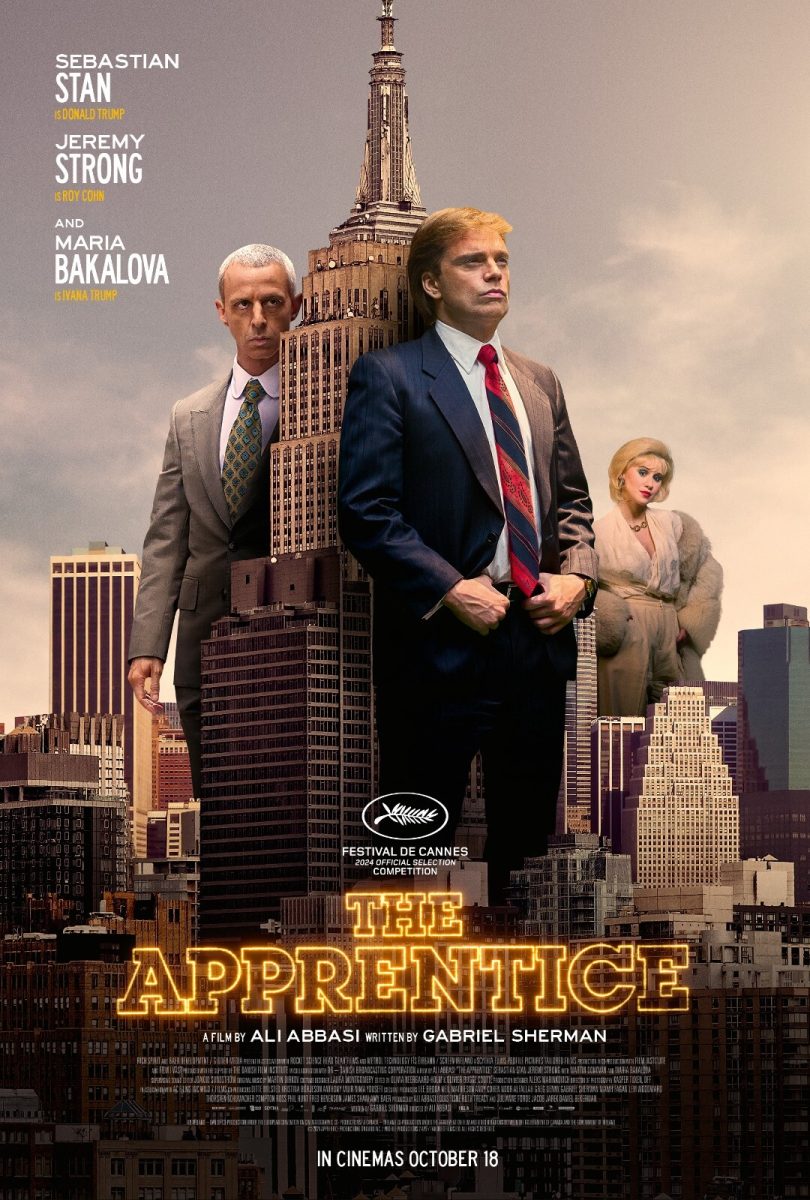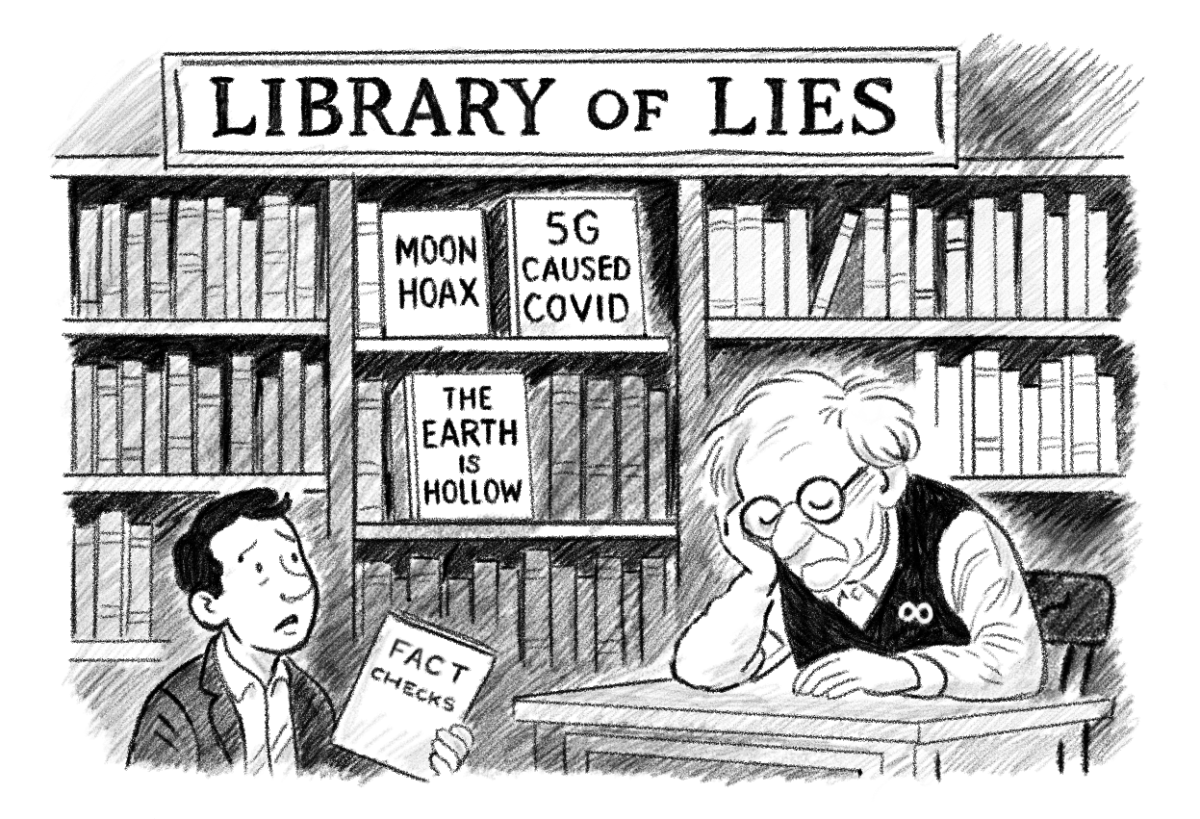You find out that a brand you love violates human rights or harms the environment through unethical practices. Should you stop buying their products, even if that means opting for a more expensive alternative? Will it really make a difference?
As once sustainable brands, like Patagonia and Reformation, switch to fast fashion and unethical practices to fulfill increasing consumer demand, we find ourselves confronted with ethical dilemmas. Consumers are now forced to weigh their personal values against both brand loyalty and the issue of cost.
Despite the growing awareness of unethical practices through social media, many consumers continue to support these brands. Luisa Duarte ’27, a devoted Nike fan, says she “wouldn’t stop buying from Nike,” even if the new evidence that has emerged about their poor worker conditions were true.
You might not think long-dead philosophers would have the answer to whether or not you should buy a tank top from Shein, but by trying on their different beliefs, we can better understand how to approach this dilemma.
Deontologists would say that making ethical choices shouldn’t depend on the result. Even if purchasing from unethical brands could harm the environment and lower workers’ quality of life, we shouldn’t base our decision off that outcome. Instead, from the perspective of Deontology, it would be innately immoral to provide any kind of support to unethical brands because it violates deeper values, including the principle of treating humans as ends in of themselves, rather than a means to an end (profit).
Kantian ethics would give a similar answer. The ethical framework, developed by German philosopher Immanuel Kant, argues that to judge whether an action is moral or not, you should try to imagine what would happen if everyone did it. This view would reinforce the idea that one should not buy from an unethical brand; if everyone bought from that brand, its exploitative practices would surely increase and go unchecked.
In contrast to Deontology, Utilitarianists argue that the morally right action is the one which brings the greatest amount of pleasure or joy to the greatest amount of people. In the philosophical world, there are quality joys—like education and good living conditions—and below them are lower joys, like products (clothes, cars, jewelry, etc.) and the experience of obtaining these products. In this dilemma, we must weigh the joy we get from fulfilling our desire for inexpensive clothing against our desire for more ethical practices.
Philosopher Peter Singer expands on this idea by arguing for an “equal weighing of preferences.” An equal weighing of preferences would mean that even if 50 people would benefit from being able to buy cheap clothes and 50 people would benefit being able to work under better conditions, we must take into account that the pleasure and joy gained from buying clothes is significantly lower than the pleasure gained by workers finally having better working conditions. Therefore, even Utilitarianists would suggest that consumers should make the sacrifice of buying more expensive, ethically-produced products to work towards giving others the opportunity for an improved quality of life.
Deep down, most of us know that supporting these brands and their practices isn’t the right thing to do. And yet, we still find ourselves clicking that inviting ‘add to cart’ button.
For many shoppers, it appears that ethics take a backseat in the purchasing process. Valentina Pombo ’27 made a candid admission that lays a bare harsh reality: when making a purchase, “you usually aren’t thinking of the ethical side of it.”
The reason people still buy from these brands is because it doesn’t feel like they have an impact, whether negative or positive. As Charlotte Funke ’27 pointed out, the perceived absence of immediate effects creates a sense there are no “personal consequences” in buying from unethical brands besides “feeling guilty about it.”
And this fleeting sense of guilt is what keeps these brands going. We’ve gotten really good at ignoring any discomfort for the sake of our convenience.
You know the feeling: scrolling through your long Edikted cart, getting ready to make the purchase, while a small voice in the back of your head recalls your mom, urging you to stop buying from ‘bad brands.’ It is much easier to just make the purchase— to buy that top and to order those jeans.
However, while one person won’t change the entire consumer industry, one person does make a difference. And together, humans can trigger massive upheavals and paradigm shifts.
Boycotts have been able to create changes that alter the course of history, from the Fair-Trade Movement started by Edna Ruth Byler to the boycotting of businesses in Apartheid South Africa led by Albert Luthuli. More recently, a consumer named Shannon Coulter started the #GrabYourWallet boycotts against products and businesses associated with the Trump Organization. These movements all have one thing in common: they started with one person making an individual decision.
As RE Ethics and AP Psychology teacher Mrs. Carson put it, “We only have the ability to control our own choices.”
Although skipping out on that one cute top might not feel impactful, human decision radiates throughout groups, communities, and cities, influencing a greater scope of people than you might believe physically possible. As corporations, these brands rely on us for success and power. We are their profit, and without profit, they cannot produce.
I ask you today to change your narrative. Stop viewing yourself as a trivial part of society, and rather as an agent of change. Together, by assuming this narrative, we can be catalysts of change in stopping unethical practices. It starts with one person.





